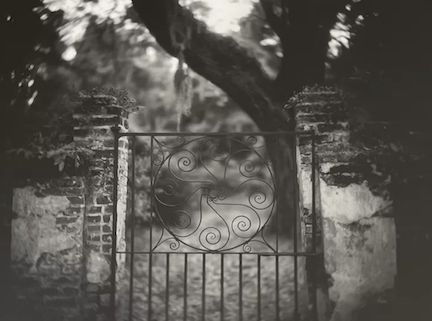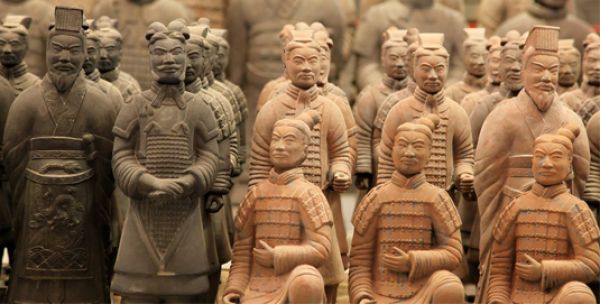Under the Shade of the Tree of Life
The alien-looking baobab tree of Africa, Australia, and Madagascar is sometimes referred to as "the tree of life" because it provides shelter, clothing, food, and water for both man and animal. The bloated trunk of the tree can store thousands of gallons of water in its spongy, fibrous wood during the rainy season, which it then uses during the subsequent dry period.

The tree produces a fruit called "monkey bread," which contains more vitamin C than four oranges. Other parts of the tree are useful as well. For example, the pollen can be used as glue, and the oily, protein-packed seeds can be roasted and eaten. Young leaves can be used like spinach and have lots of calcium, while the fibrous trunk can be woven into rope, cloth, mats, and paper. Even the bark can be used to make tea. Older trees are often hollow, providing living space for animals and humans.
Many baobab trees appear to be ancient, dated many thousands of years old. One aged tree in South Africa measures 72 feet high and 155 feet in circumference.
Did you know the Bible mentions that about six thousand years ago, there was a real tree of life here on earth?
Out of the ground the Lord God made every tree grow that is pleasant to the sight and good for food. The tree of life was also in the midst of the garden (Genesis 2:9).
What's more, we're also told we will eat from that tree in heaven!
He who has an ear, let him hear what the Spirit says to the churches. To him who overcomes I will give to eat from the tree of life, which is in the midst of the Paradise of God” (Revelation 2:7, NIV).
A Door in the Graveyard
In 1943, Etta Shuber wrote the book PARIS UNDERGROUND, in which she talks about being trapped inside Paris when Hitler's storm troopers entered in the Spring of 1940. The Germans quickly shut down the country, guarded the borders, and refused to let anyone leave.
However, a small border town saw its population diminishing rapidly.
The Nazis found that the town cemetery straddled the border, and that the locals had opened up an ancient gate in the rear of the graveyard wall. Every time mourners entered the cemetery for a funeral, they kept right on walking out the back gate, emerging into the land of freedom and life.

When Jesus died on the cross, He bore the burden and paid the cost of our sins. When He rose from the grave, He blew out a door in the back of the cemetery.
As believers, though we may be sojourners here in the land of the dead; we don't linger. We keep right on walking through that valley of the shadow of death until we emerge into the land of the eternally living and forever free.
"Truly, truly, I say to you, whoever hears my word and believes him who sent me has eternal life. He does not come into judgment, but has passed from death to life" (John 5:24, ESV).
"And this is the promise that he made to us—eternal life" (1 John 2:25, ESV).
Give Me Immortality And That's An Order!
Chinese archaeologists recently discovered a set of wooden slats in Hunan province recording an order from Emperor Qin Shihuang (who died in 210 BC) mandating a nationwide search for the elixir of life which he felt would alone provide him immortality. Also discovered among the 36,000 messages were replies from perplexed local officials who were embarrassed at their failure to meet his demands.
Emperor Qin's quest for eternal life was well known: He was responsible for the massive underground mausoleum in the northern province of Shaanxi filled with nearly 8000 terracotta soldiers built to protect him in the afterlife. The Qin dynasty -- notorious for its book burnings and executions of literati -- laid the foundation for China as the unified nation that has persisted for two millennia.

The Emperor's obsession with immortality and the COMMAND that it be brought to him were doomed from the start precisely because eternal life is the gracious GIFT of God, promised to all who simply receive it. Sinners that we are, we cannot demand, and we certainly can't command, anything from God.
In truth, all we really deserve is condemnation! However, the Apostle Paul declares in 2 Timothy 1:10 that God's saving grace "has now been revealed through the appearing of our Savior, Christ Jesus, who has destroyed death and has brought life and immortality to light through the gospel."